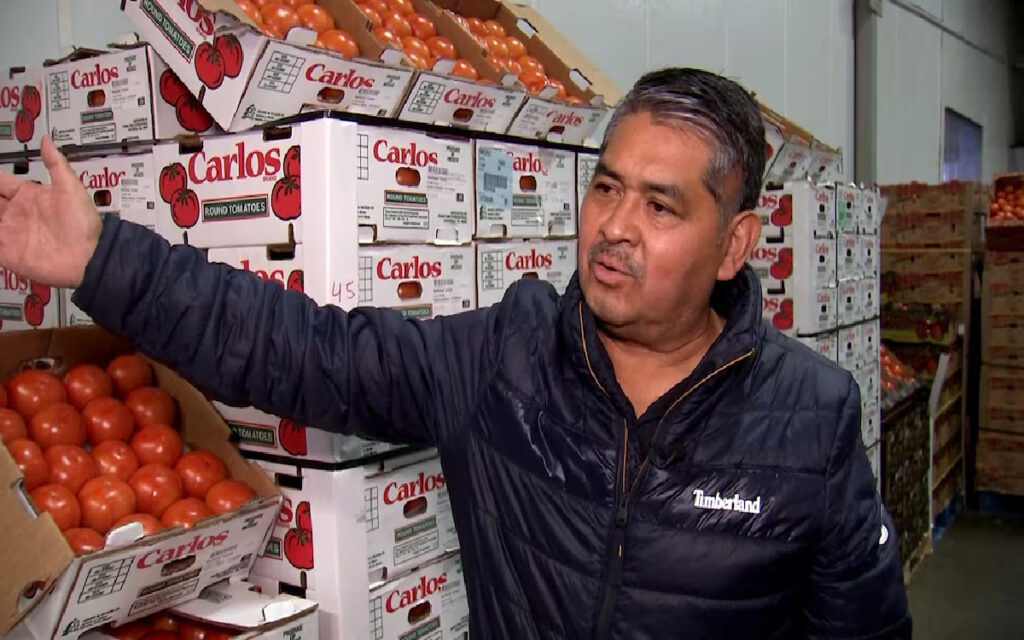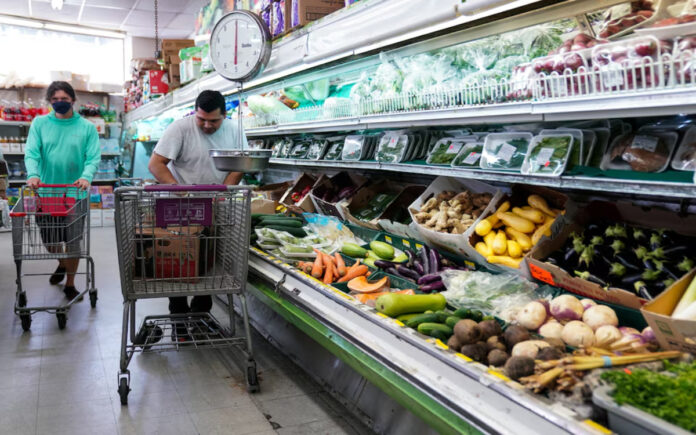Los Angeles: In the pre-dawn hours of Los Angeles, 58-year-old Melquiades Flores is hard at work. At 1 a.m., he begins overseeing the unloading of produce at M&M Tomatoes and Chile Company, the wholesale business he established in 2019 with the dream of passing it on to his children. However, this dream faces a significant challenge.
President-elect Donald Trump’s proposed tariffs—25% on all imports from Mexico and Canada, and an additional 10% on goods from China—are looming large, threatening the supply chain Flores relies on to stock homes, hotels, and restaurant kitchens across Los Angeles.

“People will have to pay a higher price. Whatever they charge us, we will pass on to the consumer,” Flores remarked from his base at the Los Angeles Wholesale Produce Market.
Reliance on Mexican Produce
Almost all the produce arriving at Flores’ warehouse carries the “Produce of Mexico” label. For most of the year, the California tomato-growing season, which lasts only from August to November, leaves wholesalers dependent on imports from Mexican states like Sinaloa, Baja California, and Sonora.
Flores’ warehouse is a vibrant display of tomatoes in every hue of red, with stacks of green tomatillos ready to be transformed into zesty sauces. Despite the proposed tariffs, Flores acknowledges he has little choice but to continue importing from Mexico.
“Any tariff is an added tax that impacts all of us, including those who buy a pound, two pounds, or a thousand or 10,000 pounds,” said Flores, originally from Morelos, Mexico, who has lived in Los Angeles for four decades.
Also Read | Experts Warn of Gas Price Surge if Trump Imposes Canadian Oil Tariffs
Inflationary Concerns and Economic Impact
While Trump touts tariffs as a tool to protect American industries and generate revenue, critics point out their inflationary effects and the risk of retaliation from major trading partners. Officials from Mexico, Canada, and China, along with industry groups, have issued warnings that these tariffs could harm economies, increase inflation, and destabilize job markets.
Flores echoed these concerns, stating, “The president should have first seen how much this will impact everyone before speaking.”
Also Read | Texas Razor-Wire Barrier Stays, Court Rules Against Biden Administration
For wholesalers like Flores, the path forward is fraught with uncertainty, as they prepare for an economic shift that could impact businesses and consumers alike.



